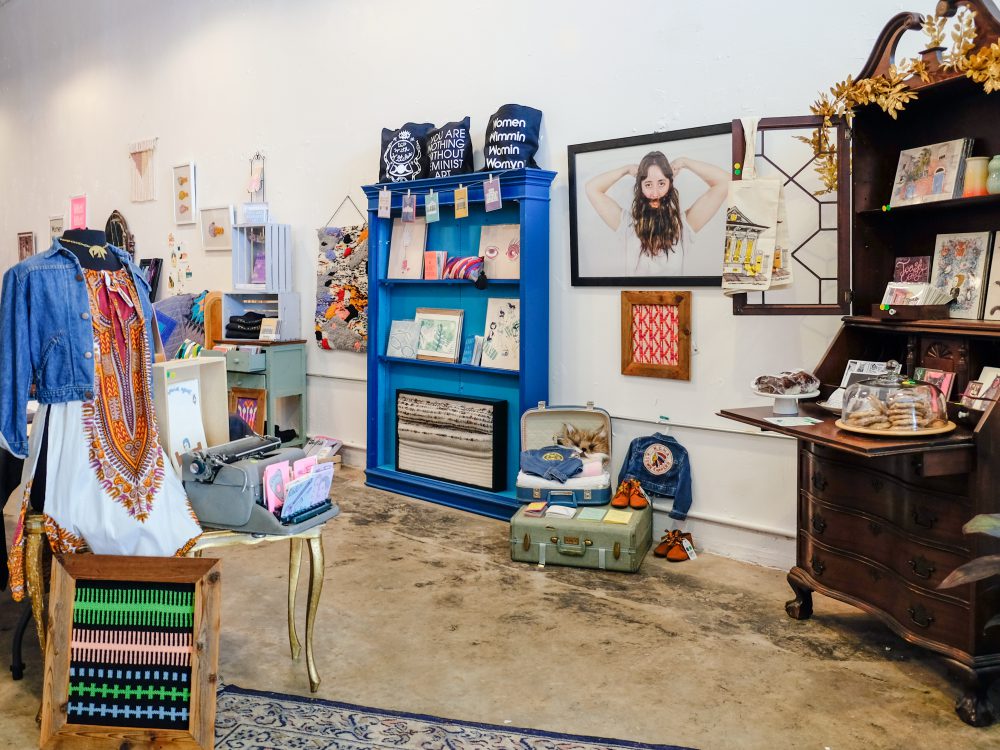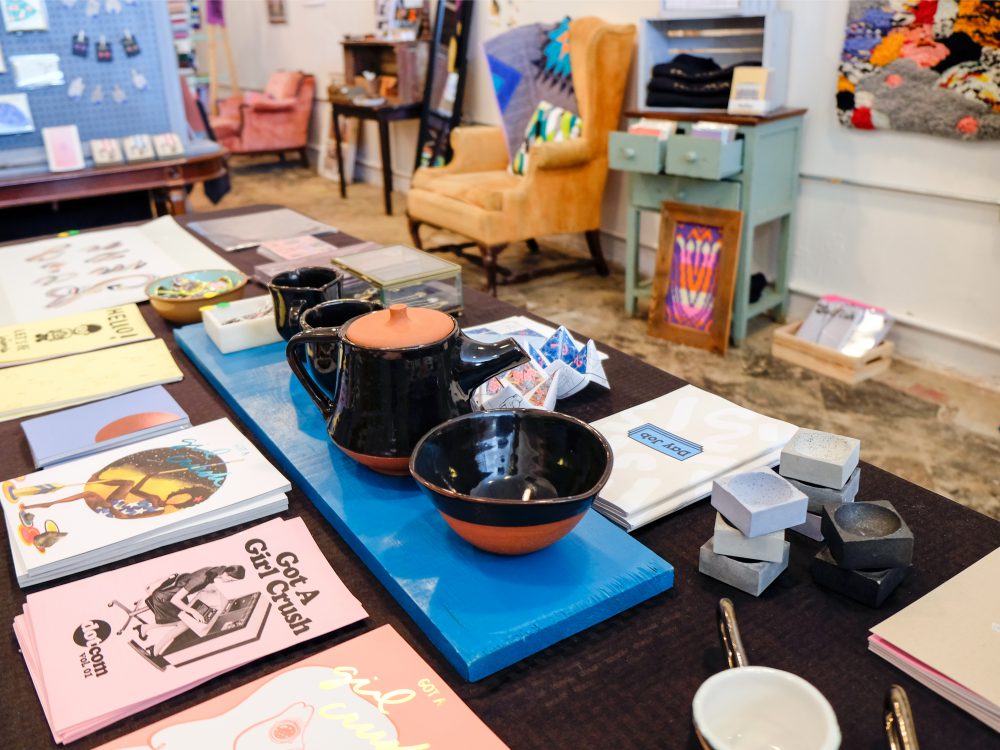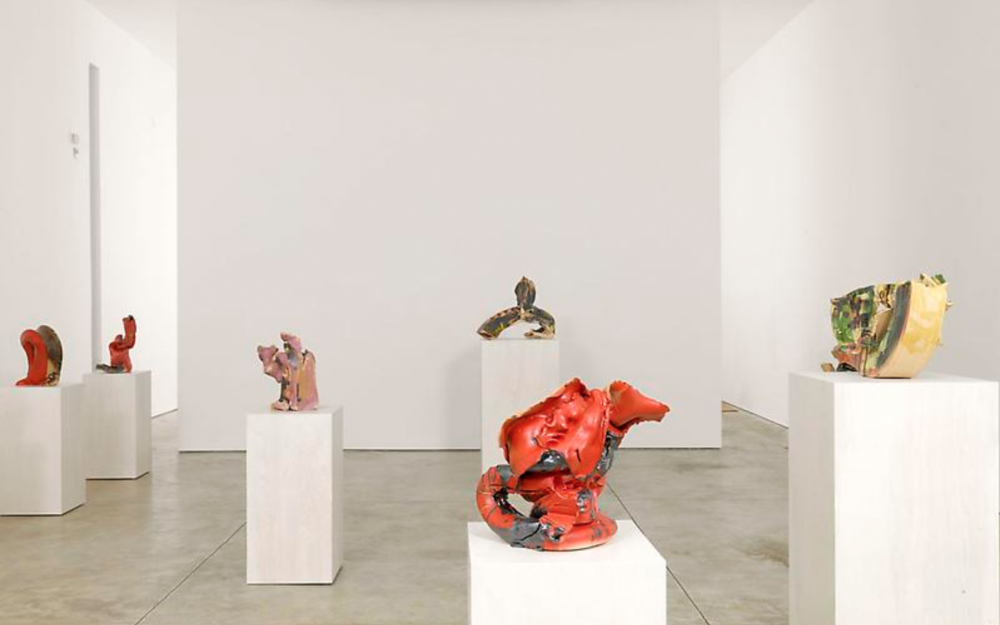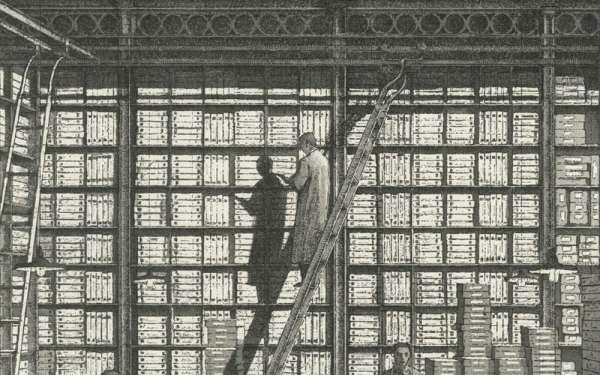Pay What You’re Paid: An Interview with Tammy Mercure
Taylor Murrow talks to artist Tammy Mercure about a pop-up shop that addresses the wage gap between women and men.

Editor's Note
The gender wage gap in the United States is more than a talking point for politicians and pundits in an election cycle; it’s a defining circumstance that affects millions of women and their families. Across the country, women make approximately 21 percent less than their male counterparts. In Louisiana, the income disparity is even greater than the national average, with women making just 66 percent of what men earn. Artists Tammy Mercure and Elana Schlenker have creatively initiated a conversation about the gender wage gap here in New Orleans with 66<100, a pop-up shop that encourages customers to “pay what you’re paid.” Women pay 66 percent of an item’s retail price, while men pay the full 100 percent.
The shop, which features art and other goods created by women artists and makers from across the country, including Artemis Antippas, Nina Chanel Abney, Kiernan Dunn, Meg Turner, FreeQuency, and many others, is open through November 30 at 1612 Oretha Castle Haley Boulevard.
—Taylor Murrow
Taylor Murrow: How did this project get started? I know that Elana Schlenker, your partner in 66<100, opened a pop-up shop in Pittsburgh (76<100) with a similar message. Why did you two choose to bring this project to New Orleans?
Tammy Mercure: Elana came up with a great idea, and when she started to tell me about it, we began having good discussions right away. It was a friendly invitation to talk about experiences with money and jobs and clients—things I don’t generally discuss. It was great to have a supportive person to talk to. Right away I wanted to bring the idea to New Orleans. There are so many amazing artists and makers here. And the job market is challenging. Most of my friends and I work several part-time jobs and juggle so many things.
Murrow: What was the reaction to Elana’s project in Pittsburgh, and how has it been received in New Orleans? Do you find that visitors are surprised/offended/supportive?
Mercure: Everyone was very supportive in Pittsburgh. One of the nicest surprises was how many parents and grandparents brought their children and grandchildren. Most people asked questions. They may have known there is a wage gap, but they didn’t know why. We have printed materials in the shop. For New Orleans, we produced a Riso-printed poster that talks about why there is a gap and what we all can do.
Men have been supportive of the project, but I tend to focus more on the women who come in and talk. I had so many great conversations with the artists who were dropping off work for the shop. They all have so many areas of expertise, and I love being around other women who are doing things. Recently, I made about $2,000 more for a job because a friend told me to ask clients for their budget amounts. I was going to suggest so much less than the client had written in. The hopeful thing is that we can begin to correct the wage gap by simply being aware of it. Making salaries and evaluation criteria transparent can make the gap go away.
There have already been great moments in the shop’s first few days here. A man who works next door visited the first day and told his wife she’d love the shop. She came in the next day and bought a few items. We were talking, and she was excited to share that her current job is the first she’s had where she felt she was getting fairly compensated and wasn’t getting penalized when she needed to take care of her children. We kept chatting and found out her supervisor was an artist in the shop! Another great moment was when a group of girls came over right after school on opening day and said they had been waiting for the shop since April when they heard about it on Buzzfeed.

Murrow: What sort of items is the pop-up shop selling? Are there other programs planned to facilitate the gender wage gap discussion?
Mercure: The shop has an array of items. Living with art enriches lives. There are quilts, candles, clothing, tiaras, prints, zines, pottery, and more. There are about 70 artists. The shop is open Tuesday through Sunday for the month of November. There have been events throughout the month. On November 10, we had a Negotiation Workshop for Women led by Lelia Gowland. She led us through figuring out how much we are worth and how to negotiate for that. We were also able to provide childcare for the evening.
Murrow: What's your advice to women who have a hard time asking what they’re worth in the workplace? Have you struggled with this yourself?
Mercure: Definitely. I am a confident person and am confident in my skills, yet I have been in many situations where I have not been paid as much as other people. One of my biggest struggles is with language. I don’t celebrate verbally a lot of the accomplishments that men talk about at work that make them seem “valuable.”
I've had luck with asking questions. With clients, I start with: What is the budget for this project? What do you expect? And so on. In the workplace, ask what you can do to be on track for a raise or promotion and what the evaluation criteria are for reviews. (Sometimes you even have to request a review.) It’s tricky because I also recently lost a job for asking for more money. But talking to other people at work is a great start to help read the situation and see what is being valued.
Murrow: How does this project fit in with your broader body of work as an artist?
Mercure: I’m a photographer, and the thing I love most is being able to interact with people. I talk to so many more people than I would otherwise. Doing the shop is a great way to meet other artists who are doing awesome work and thinking about the world in a way that excites me. I like to listen to better understand others.



